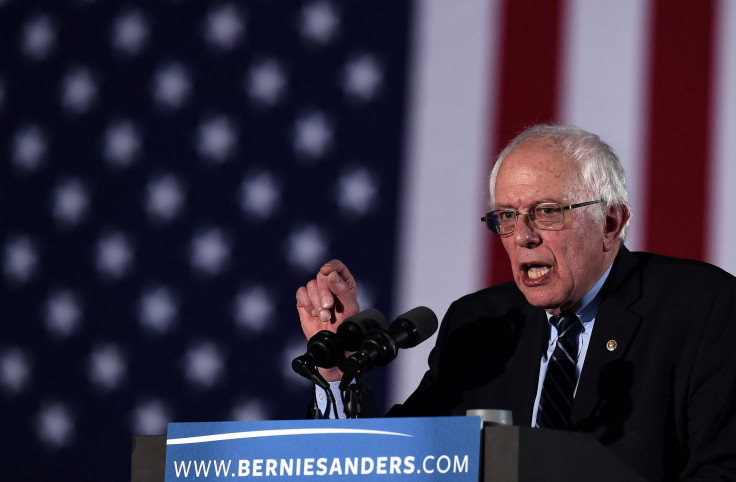How Bernie Sanders Played A Big Role In Religious Liberty Fight To Display Menorah

The display of religious symbols in public places is a controversial issue — and one that Democratic presidential candidate Bernie Sanders took a stand on when he was mayor of Burlington, Vermont, in the 1980s.
According to documents uncovered by the Orthodox Jewish group Chabad Lubavitch, Sanders, who has described himself as Jewish, supported the erection of a giant Hanukkah menorah on city property. He ordered his administration and its attorneys to defend the placement in court.
In 1983, Chabad Lubavitch appointed two rabbis to serve as emissaries to Vermont, where they contacted Mayor Sanders’ office for permission to light an 8-foot menorah on the steps of Burlington City Hall as part of a worldwide campaign. Sanders agreed and also accepted the invitation to light the menorah in a ceremony in front about 35 Jewish students from the University of Vermont. Sanders himself also donned a kippah and read Jewish blessings during the ceremony.
Sanders’ administration continued to grant permission for such displays, including in 1986 when the Chabad group wanted to erect a giant menorah in City Hall Park for all eight days of the holiday. But that action set off a legal challenge by the American Civil Liberties Union, which contended that a menorah located in a public spaced violated federal laws on the separation of church and state.
On Nov. 30, 1988, U.S. District Judge Franklin Billings ruled that the location was a public forum and that the menorah could remain, but the 2nd U.S. Circuit Court of Appeals overturned the ruling. According to the Court of Appeals, the menorah stood alone and served as an endorsement of religion because the City Hall building was in the background.
Sanders supported the fight until the end. John Franco, an assistant attorney in the Sanders administration, said that there was no question whether the then-mayor would support placement of the religious symbol.
“I cannot be emphatic enough in expressing how much Lubavitch was in its rights to put up a menorah,” he told Chabad.org. “To us it was never even a question; it was clearly a First Amendment case, and we were going to fight for their rights to do so. It was never a consideration not to.”
Richard Sugarman, a longtime friend of Sanders and a professor of philosophy at the University of Vermont, added that there was no question how Sanders saw the issue.
“When Bernie and I discussed the menorah issue, it was a religious freedom case ... It resonated with him. It wasn’t about fighting other holidays; it was about making a religious freedom argument,” said Sugarman.
© Copyright IBTimes 2024. All rights reserved.











